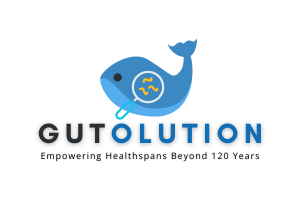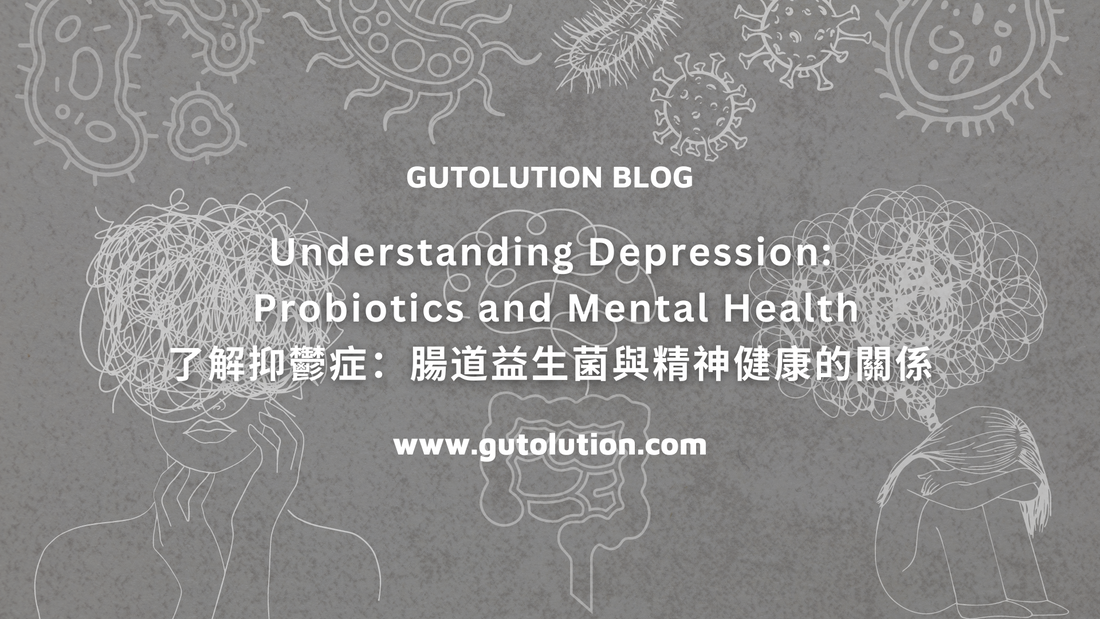What is Depression?
Depression is a common mental health disorder that affects millions of people worldwide. Anxiety and stress frequently coexist with depressive disorders, affecting roughly 75% of children and adolescents. Characterized by persistent feelings of sadness, hopelessness, and a lack of interest or pleasure in daily activities, depression can significantly impact a person's ability to function. It's more than just feeling down for a few days; it is a complex condition with psychological, social, and biological roots that can last for weeks, months, or even years.
How Depression Might Be Related to the Gut Microbiome
Recent research has revealed a fascinating connection between the gut microbiome and mental health, often referred to as the "gut-brain axis." The gut microbiome, which consists of trillions of microorganisms living in the digestive tract, plays a crucial role in maintaining overall health, including the regulation of mood and emotions.
Studies suggest that an imbalance in the gut microbiome, known as dysbiosis, can lead to inflammation and changes in the production of neurotransmitters, such as serotonin, which is primarily produced in the gut. This disruption can affect the communication between the gut and the brain, potentially contributing to the development or exacerbation of depressive symptoms. The gut-brain axis is a bidirectional pathway, meaning that stress and anxiety can also negatively impact gut health, creating a vicious cycle.
Probiotic Strains Related to Depression
Several probiotic strains have shown promise in supporting mental health by influencing the gut-brain axis. These strains, often referred to as "psychobiotics," have been studied for their potential to alleviate symptoms of depression:
- Lactobacillus Rhamnosus: This strain has been shown to reduce anxiety and depressive behaviors in animal studies by modulating the levels of the stress hormone corticosterone.
- Bifidobacterium Longum: Research indicates that this strain can improve mood and cognitive function, possibly by reducing systemic inflammation and modulating gut-brain communication.
- Lactobacillus Helveticus and Bifidobacterium breve: A combination of these strains has been found to lower cortisol levels and improve symptoms of anxiety and depression in clinical trials.
- Lactobacillus Plantarum: This strain has been associated with reduced symptoms of depression and anxiety by improving the balance of neurotransmitters like serotonin and GABA.
Statistics and Case Studies on Probiotics for Depression
The use of probiotics as a complementary treatment for depression has gained traction in recent years, supported by a growing body of scientific evidence:
A study published in The Lancet found that patients with depression who received probiotic supplementation showed significant improvements in depressive symptoms compared to those who received a placebo. (1)
Another research article in the National Center for Biotechnology Information (NCBI) highlighted a clinical trial where participants with major depressive disorder were given a probiotic supplement containing Lactobacillus Helveticus and Bifidobacterium Longum for eight weeks. The results showed a significant reduction in depression scores compared to the placebo group. (2)
A meta-analysis involving multiple studies found that probiotics can have a moderate effect in reducing symptoms of depression, particularly when used alongside conventional treatments like antidepressants. (3)
The Future of Depression Treatment with Precision Probiotics
As our understanding of the gut-brain axis deepens, the potential for precision probiotics to play a role in the treatment of depression becomes increasingly evident. By targeting specific strains that influence mood and cognitive function, it is possible to develop personalized probiotic therapies that complement traditional treatments for depression. The integration of microbiome health into mental health care could open new avenues for improving the well-being of those suffering from this pervasive condition.
For those interested in exploring this further, it may be worthwhile to consider a gut health test to determine your unique microbiome profile and see how targeted probiotics could support your mental health.
Check out our Precision Probiotics Program at:
https://gutolution.com/products/gutolution%E2%84%A2-adults-precision-probiotics-program
Reference research:
- Gut microbiota and its metabolites in depression: from pathogenesis to treatment https://www.thelancet.com/journals/ebiom/article/PIIS2352-3964(23)00092-0/fulltext
- Gut Microbiota in Anxiety and Depression: Unveiling the Relationships and Management Options https://www.ncbi.nlm.nih.gov/pmc/articles/PMC10146621/
- Updated Review and Meta-Analysis of Probiotics for the Treatment of Clinical Depression: Adjunctive vs. Stand-Alone Treatment https://www.ncbi.nlm.nih.gov/pmc/articles/PMC7915600/


 Whatsapp us!
Whatsapp us!